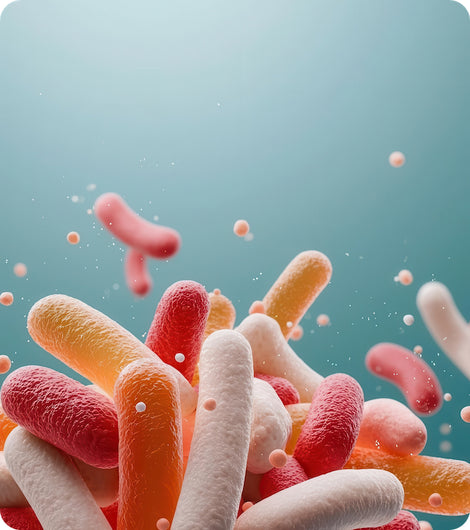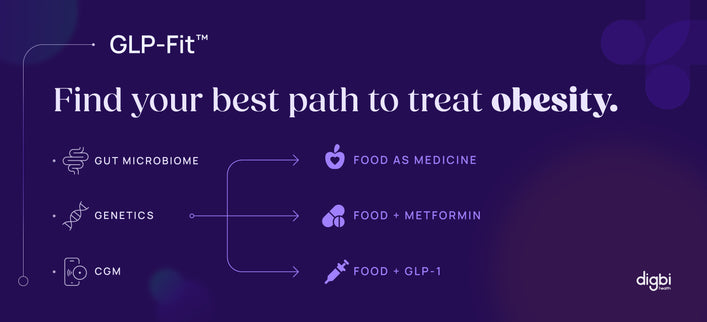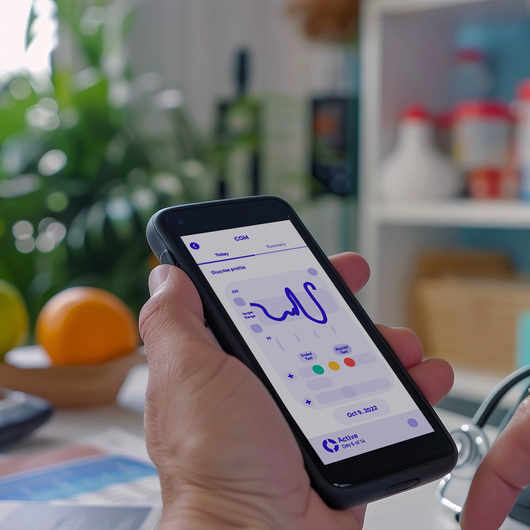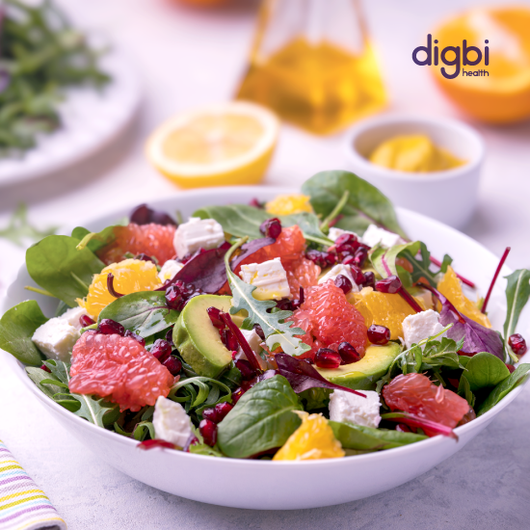Your gut influences almost all aspects of your physiology and biology, from strengthening your immune system to regulating your metabolism and weight. The gut microbiome, a complex community of billions of bacteria and microorganisms that dwell in the large intestine, maintains your gut health. And your digestive system is the home of your gut microbiome. So for good gut health, you need to have good digestive health!
Data from the GI Alliance indicates that nearly 62 million Americans are diagnosed with digestive disorders each year. Multiple factors are responsible, including stress, fatigue, smoking, and diet. And if the diagnosis is diet-related, then it’s likely those individuals lack essential vitamins for digestive health.
What you eat affects your digestion, and, there are some key vitamins for digestive health that play a crucial role in keeping your stomach and gut running smoothly. This list is a broad outline of some good vitamins for digestion that can keep your gut healthy and happy.
There are some key vitamins for digestive health that play a crucial role in keeping your stomach and gut running smoothly.

Vitamin A
Vitamin A helps maintain the gastrointestinal tract lining and feeds the mucosal tissue (this is the membrane that lines your gut), ensuring digestion is normal. When you don’t get enough Vitamin A, it gets harder for nutrients to pass through the intestinal lining, which can affect the structure of the gut microbiota.
Good sources of Vitamin A include:
- Orange-hued vegetables like carrots, pumpkin and sweet potatoes
- Kale and other dark leafy greens
- Eggs, milk and soy milk
Vitamin D
The “Sunshine Vitamin” is not only an essential nutrient for healthy bones and teeth, but it is also one of the crucial vitamins for digestive health, since it improves and maintains a rich gut flora. Studies also indicate that Vitamin D supplementation could decrease the risk of colon cancer.
Studies show that a deficiency in Vitamin D can trigger autoimmune disorders since this alters the gut microbiome and the intestinal epithelial barrier. IBS (Irritable Bowel Syndrome) and Crohn’s Disease are disorders that often occur in individuals with low Vitamin-D levels.
There is also a link between Vitamin D deficiency and obesity. Low Vitamin D levels cause fatigue, which is one of the underlying causes of weight gain. Supplements and foods rich in Vitamin D can help ease these problems.
Food sources include:
- Egg yolks
- Liver
- Saltwater fish
- Fortified milk and cereal
And, of course, exposure to the sun.
Vitamin C
To make sure your immune and digestive systems work well, you need to get enough Vitamin C, one of the must-have vitamins for digestive health. Digestion starts in your mouth when you begin chewing your food — and Vitamin C keeps your teeth and gums strong, making sure you bite and chew right!
Vitamin C aids in absorbing iron (necessary to maintain your energy levels) and boosts collagen production (collagen is found in the tissues that line your digestive tract and help hold them together).
Vitamin C food sources include:
- Fruits like oranges, grapefruit, strawberries and papayas
- Broccoli
- Liver
Vitamin B
B-Vitamins are essential to the breakdown, absorption and utilization of several other important nutrients we consume, like carbs, protein and fat. A deficiency in B-Vitamins leads to fatigue since they provide the body with an immense amount of energy.
This group of vitamins that help digestion comprises thiamine, riboflavin, and niacin, each of which influences the gut somehow. Each of these plays a different role within the digestive system, but together, they work to make sure that your gut breaks down and uses the food you eat.
Good sources of Vitamin B include:
- Dairy
- Meat
- Fatty/ oily fish
- Leafy greens
The Wrap
We've listed some of the key vitamins for stomach health that should be incorporated into your diet. But how you work these vitamins into your diet is what will help nourish and heal your gut.
Eating the right foods is important. But eating the right foods for your body is what solves chronic health problems. All of us are different, and bio-individuality is something you can’t ignore regarding your health and diet. A Vitamin A-rich food source that works for you may cause an unwanted reaction in someone else… which is why a customized diet is a must to overcome gut health problems.

The Digbi program uses personalization and DNA mapping to find a permanent solution to your gut health issues, based on our at-home Gut-Kit analysis.
And the Digbi approach works…. one of our members, Mike struggled with high blood pressure, gut and weight issues. Our diet and program, created specifically for him, improved his health. In addition to fixing his symptoms of IBS, he's also managed to reverse his high blood pressure and lose 107 lbs. Digbi’s one-on-one coaching has Julie eating better — and feeling better!
If you’re dealing with gut health issues that don’t seem to be going away, Digbi can help. We can give you the diagnosis, direction and diet you need, with key foods that contain vitamins for digestive health.
Our Gut Microbiome and DNA-based personalized program, along with consultations and regular check-ins with our health coaches, can help reverse your gut issues for good.
Ready to start? Order your easy at-home Gut-Kit today.
Have questions? You can always reach us at ask@digbihealth.com
FAQs
- What do digestive vitamins help with?
Digestive vitamins (vitamins for the digestive system) help with several aspects of digestion. They help maintain a rich gut microbiome, keep the lining of your gastrointestinal tract intact, help you absorb nutrients better, help you break down food better, and keep your teeth and gums in good shape. A, B, C and D are essential vitamins good for digestion.
- What vitamins should not be taken together?
Research indicates that certain combinations of vitamins for digestive health should not be paired, but this may depend on your physiology. Talk to your medical practitioner or health coach for a better analysis.
- Is Vitamin C good for digestive health?
Yes. Vitamin C helps keep your teeth and gums strong and healthy. Digestion begins in your mouth and your teeth and gums are integral to chewing and processing food before it hits your stomach.
- Is Zinc good for digestion?
Yes. Zinc helps the absorption of Vitamin A, improves your energy levels and is vital for the production of digestive enzymes. It also enhances your sense of smell, which is one of the first things you notice when you begin eating.












